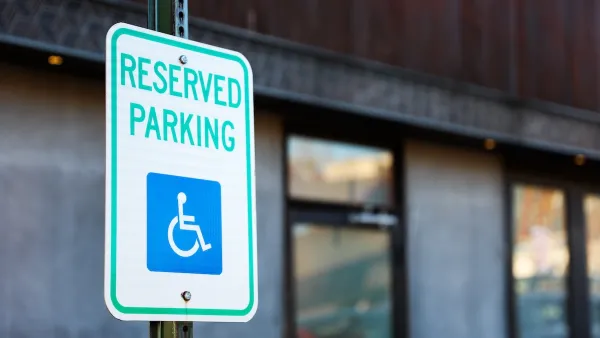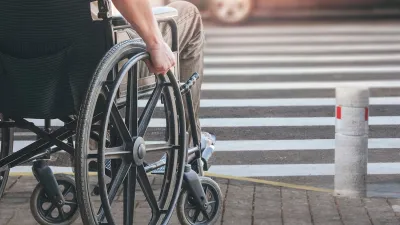Proponents of 'dementia design' call for inclusive design that centers the experience of people living with dementia and other disabilities that impact how they experience the urban environment.

"The design of the built environment can have a profound impact on how a person with dementia perceives, experiences and engages with the places and spaces in which they live," writes Lesley Palmer, Chief Architect at the University of Stirling's Dementia Services Development Centre.
But "Research has shown that rather than drawing upon the experiences of older people, their families and care professions, architects designing for later life are more likely to draw upon presumed needs and experiences of the older person as imagined by themselves."
To more appropriately design for people living with dementia, "Dementia design is a non-medical approach to help reduce some of the symptoms associated with dementia, such as agitation, aggression, confusion, incontinence and visual, spatial and navigational difficulties."
This approach, which was first developed in the 1980s in Australia, incorporates some key concepts: "it should compensate for disability, maximise independence and enhance self-esteem and confidence. It should also demonstrate care for staff needs, be orientating and understandable, reinforce personal identity, welcome relatives and the local community, and allow control of stimuli – for example, reducing unwanted noises associated with alarm systems."
Early advocates for dementia design, writes Palmer, called for viewing dementia as a disability rather than a disease with the goal of designing spaces that help people maintain everyday functions. "I believe it would also be helpful to recognise dementia as a public health issue and use design to address some of the challenges this brings," Palmer continues. "This would enable architects and planners to integrate dementia-design principles in a similar fashion to the way in which the Disability Discrimination Act supported people with physical disabilities."
FULL STORY: What is Dementia Design?

Planetizen Federal Action Tracker
A weekly monitor of how Trump’s orders and actions are impacting planners and planning in America.

Chicago’s Ghost Rails
Just beneath the surface of the modern city lie the remnants of its expansive early 20th-century streetcar system.

San Antonio and Austin are Fusing Into one Massive Megaregion
The region spanning the two central Texas cities is growing fast, posing challenges for local infrastructure and water supplies.

Since Zion's Shuttles Went Electric “The Smog is Gone”
Visitors to Zion National Park can enjoy the canyon via the nation’s first fully electric park shuttle system.

Trump Distributing DOT Safety Funds at 1/10 Rate of Biden
Funds for Safe Streets and other transportation safety and equity programs are being held up by administrative reviews and conflicts with the Trump administration’s priorities.

German Cities Subsidize Taxis for Women Amid Wave of Violence
Free or low-cost taxi rides can help women navigate cities more safely, but critics say the programs don't address the root causes of violence against women.
Urban Design for Planners 1: Software Tools
This six-course series explores essential urban design concepts using open source software and equips planners with the tools they need to participate fully in the urban design process.
Planning for Universal Design
Learn the tools for implementing Universal Design in planning regulations.
planning NEXT
Appalachian Highlands Housing Partners
Mpact (founded as Rail~Volution)
City of Camden Redevelopment Agency
City of Astoria
City of Portland
City of Laramie





























